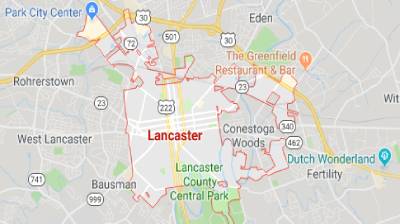Basic Terms Used for Mortgage & Real Estate Transactions
Terms: A – F ~ G – M ~ N – S ~ T – Z
Real estate and mortgage transactions may involve other terms. In the event you don’t understand some of these terms, ask for help from your Realtor®, Lender or Attorney.
Click on the first letter of the term you want defined to jump to that alphabetical category.
When monthly payments do not cover the interest there is an increase in the principal balance. This is means that the principal balance will increase.
Non-conforming loan
Loans that do not follow the guidelines set by Fannie Mae and Freddie Mac.
Note
An instrument that recognizes a debt and acknowledges the need to pay.
Notary Public
Someone who is duly authorized to take acknowledgements of deeds, contracts, and mortgages.
Notice of default
A notice sent to the wrongful party as recognition of a default made.
Used as a way to show a home to prospective buyers and those who are interested in making a purchase. The home is left open and an appointment is not necessary.
Open End Mortgage
Allowing a mortgagor to obtain more money under the same mortgage. There may be some conditions and stipulations to follow however.
Origination Fee
Fee charged in for the service of originating a mortgage loan.
Oral Contract
An agreement about sale, or conditions of sale, for property made verbally.
Owner of Record
A person’s whose name appears on the deed which has been noted at the county’s office of record.
Owner Occupant
Property which is inhabited by a resident who owns the property.
The release of property that may be used as collateral.
Permanent Loan or Mortgage
A mortgage that is kept for a substantial amount of time.
Permit
Issued by the government and used to take a form of consent, e.g. an occupancy permit grants permission to the owner to occupy or rent property.
PITI (Principal, Interest, Taxes, and Insurance)
All of these can be joined into one monthly mortgage payment.
Planned Unit Development (PUD)
A zoning classification which allows some flexibility in the design and construction of the individual units in a development. Units are individually owned but there are common areas owned by the group.
Plat
Land area that is mapped or planned.
Plat Book
The public record of divisions of land showing specific blocks, roads, and other necessary measurements of the land.
Points
Origination and discount points paid to a lender, e.g. 2 points = 2% of the total loan. If a a loan is $200,000 then 2 points is $2,000.
Portfolio Loan
A type of loan that is held by the bank and is not to sold on the secondary mortgage market.
Power of Attorney
A document authorizing someone (who does not need to be an attorney) the authority to act in the best interest of another.
Prepaid Interest
Prepaid interest is the interest charged to borrowers at closing to pay for the cost of borrowing for the remainder of the current month.
Prepayment
The ability to make a principal payment in full or part before the due date of the loan, e.g. advance monthly payments, refinance…
Prepayment Penalty
Fees assessed when the borrower pays of a mortgage before it is due.
Primary Mortgage Market
Companies like banks, savings and loans, credit union, etc. that originate and service mortgage loans make up the primary mortgage market.
Prime Rate
Short term loans with very low interest rates are often offered at the lowest commercial interest rate available. These loans are normally only available to the most credit worthy customers.
Principal
Balance owed on a loan.
Private Mortgage Insurance (PMI)
Some lenders will allow a down payment smaller then the one normally required if the borrower purchases private mortgage insurance which guarantees the repayment of the mortgage under certain terms.
Property Tax
Government tax that is assigned to a property based on the county’s assessment value.
A deed which transfers the interest the maker of the deed has in a parcel of land. It is often used to clear the title when the grantor’s interest in a property is at question. When accepting a quit claim deed, the buyer assumes all the risks involved.
A property salesmen who follows the guidelines set by the National Association of Realtors®.
Real Estate Broker
An individual, usually owning a company, who is licensed to act for a property seller or buyer.
Real Estate Settlement Procedure Act (RESPA)
Treatment, stated by law, given to people who file for loans and mortgages on 1-4 units, e.g. a lender is required by law to give a good faith estimate of closing costs within 5 days of someone filing for a loan.
Refinancing
The ability to repay an established loan with the monies from a new loan on the same property.
Re conveyance
When a mortgage is fully paid for the property in full the lender will convey the property back to the owner.
Recording
Processing information into a database that would affect the title of property. Lenders require that a deed of trust or a mortgage be recorded as evidence of debt.
Rescission
The ending of contract. When refinancing a mortgage on property, requires the borrower/owner to cancel the contract within 3 days if they decide not to proceed with the refinancing.
Regulation Z (Reg Z)
Regulation set by the federal government requiring creditors to give the full terms and agreements of a loan and the APR (annual percentage rate) to a borrower.
Reverse Mortgage
A mortgage used by the elderly in which they receive an income (payments) as long as they are alive. The principal of the loan increases as these payments are made, hence the term reverse.
Rollover Loan
A loan that is long term (e.g. 30 years) were the interest rate is kept lower for a shorter number of years (e.g. 5). This type of loan can either be rolled over or extended based on the terms of the loan at the end of the shorter period.
The ability to sell mortgages, loans and savings to investors like Fannie Mae and Freddie Mac.
Second Mortgage
Used in the addition to the first mortgage. Second mortgages usually carry higher interest rates and are known as a higher risk to investors due to the fact that they are subordinate to any first mortgages.
Security
In the case of debt property is used as collateral.
Servicing
The servicing of a mortgage by billing, managing, filing, and collecting.
Settlement Statement
A closing agent makes a closing document that states the settlement cost of the loan. Once the agent finishes the document it is sent to the buyer at closing.
Special Assessment
An additional tax on property to pay for improvements in the community.
Sheriff’s Deed
A deed given at the sheriff’s sale.
Single Family Housing (SFR)
A home with only one dwelling, e.g. Town houses and detached single family homes.
Spec House
A dwelling built with the confidence that someone will buy it.
Standard Uniform Loan Application (Form 1003)
A standard loan application.
Subdivision
An area of land the is divided for the possibility of a housing development.
Subordination
A loan with a lower priority than another, e.g. a second mortgage lien is subordinate to a first mortgage lien.
Survey
A map provided by a licensed surveyor which shows land boundaries, measurements, and charts of property.
Sweat Equity
When improvements to the property are made by the owner, the value of the property rises by a value know as sweat equity.



